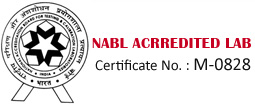Certainly, here are some important pathology tests related to neurology:
- Electroencephalogram (EEG): An EEG is a test that measures electrical activity in the brain. It is often used to diagnose conditions like epilepsy, seizures, and other brain disorders by recording the brain’s electrical patterns.
- MRI (Magnetic Resonance Imaging): MRI is a powerful imaging technique that provides detailed images of the brain’s structures. It is commonly used to diagnose conditions such as brain tumors, multiple sclerosis, strokes, and neurodegenerative diseases.
- CSF Analysis (Cerebrospinal Fluid Analysis): Analysis of cerebrospinal fluid obtained through a lumbar puncture can provide valuable insights into neurological conditions like infections, inflammation, and certain neurodegenerative disorders.
- Nerve Conduction Studies (NCS) and Electromyography (EMG): These tests evaluate the health of nerves and muscles. NCS measures how well nerves transmit electrical signals, while EMG assesses muscle response to nerve stimulation. They are used to diagnose conditions like neuropathies and muscle disorders.
- Neuropsychological Testing: This involves a battery of tests that assess cognitive and psychological functions, helping diagnose conditions like Alzheimer’s disease, dementia, and other cognitive impairments.
- Genetic Testing: Genetic tests can identify specific genetic mutations associated with various neurological disorders, including Huntington’s disease, Parkinson’s disease, and certain forms of muscular dystrophy.
- Cerebral Angiography: This imaging technique involves injecting a contrast dye into the blood vessels and taking X-ray images to evaluate blood flow in the brain. It is used to diagnose conditions like aneurysms, arteriovenous malformations (AVMs), and strokes.
- PET Scan (Positron Emission Tomography): PET scans provide images of brain activity by measuring glucose metabolism. They are used to study brain function and diagnose conditions like Alzheimer’s disease and other cognitive disorders.
- Biopsy: In cases where a brain tumor is suspected, a biopsy may be performed to obtain a tissue sample for examination. This helps determine the tumor’s type and grade, aiding in treatment planning.
- Serum and CSF Antibody Testing: These tests help diagnose autoimmune neurological disorders such as Guillain-Barré syndrome, myasthenia gravis, and certain encephalopathies.
- Neuroimaging with Functional Techniques: Functional MRI (fMRI), diffusion tensor imaging (DTI), and other advanced techniques provide insights into brain function and connectivity, aiding in the study of conditions like autism and schizophrenia.
These are just a few examples of important pathology tests in neurology. Depending on the specific symptoms and conditions, neurologists may utilize a combination of these tests to accurately diagnose and manage neurological disorders.
0172-5017001, 5017002 | altuslabschd@gmail.com | Altus Diagnostic Pvt. ltd SCO 35 Sector 16-D, Chandigarh (UT)



